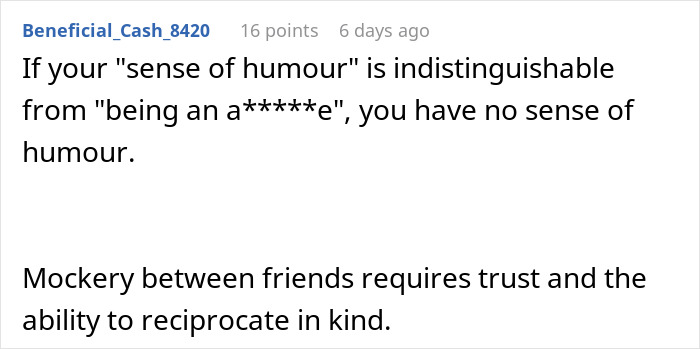Mocking someone formispronuncinga word is a jerk move no matter the circumstances; unless, maybe, it’s a goodfriendand you do it in a gentle teasing kind of way. But ridiculing someone’s pronunciation when it’s their second, third, or Xthlanguage, especially when you’re monolingual yourself, is definitely not right.
Scroll down to find the full story below, where you will also findBored Panda’sinterview withDr. Viorica Marian, Professor of Communication Sciences and Disorders at Northwestern University and author of best-selling bookThe Power of Language: How the Codes We Use to Think, Speak, and Live Transform Our Minds.
RELATED:
Being able to communicate in several languages is not something everyone can do

Image credits:GaudiLab / Envato (not the actual photo)
However, some people, like this netizen’s friend, mock a multilingual person knowing only one language themselves

Image credits:kegfire / Envato (not the actual photo)

Image credits:Expensive-Print7397
Most Europeans believe that everyone should speak at least one foreign language

Learning aforeign languageis not always easy. In some instances, it can actually be very, very difficult. (I am certain that having to learn numbers in French or verb conjugation in Lithuanian, just to name a couple of examples, have pushed many learners to the brink of tears.) Be that as it may, a number of people manage to master a second, a third, a fourth language and sometimes even more.
The Eurobarometersurveycarried out in 2023 found that in Europe, for instance, most people have positive attitudes towards multilingualism and value language diversity; nine-in-ten of them believe that everyone should speak at least oneotherlanguage than their mother tongue. In most cases, that one other language is English, which close to half of Europeans (47%, to be exact) have mastered to some extent, making it the most popular foreign language in the region.
According to the survey, the youth—people between ages 15 and 24—seem to be especially motivated or interested in learning foreign languages. Out of them, roughly four-in-five are able to carry out a conversation in a language that they are not native to (marking a 5% increase since 2012). Out of Europeans of all ages that are proficient in a foreign language, close to a third reportedly use it on a daily basis.
“Knowing multiple languages is like a superpower,” expert says
If you’re wondering what motivates people to learn a foreign language, the aforementioned survey suggests that job opportunities are a big motivator, encouraging roughly half of Europeans to delve deeper into language learning. Other benefits they see in said activity include being able to understand people from other cultures and using it on holidays abroad.
Learning or practicing a foreign language is also good exercise for the brain. “Being bilingual and multilingual has multiple benefits for the brain, for aging, and for cognitive, social, and economic outcomes,” says Northwestern University professor and author ofThe Power of Language: How the Codes We Use to Think, Speak, and Live Transform Our Minds, Dr. Viorica Marian.
“Knowing multiple languages is like a superpower that helps delay the onset of Alzheimer’s and dementia, improves cognitive control, benefits metalinguistic and metacognitive skills, and boosts creativity, in addition to immediately noticeable benefits like being able to communicate with people who speak other languages, facilitate travel, and making one eligible for jobs in which knowing a specific language is required.”
But it’s not only the benefits of learning a language that are fascinating; the way our brain reacts to languages—foreign or native—is, too.A studydelving deeper into the way the brain of a polyglot—a person who can speak five or more languages—works found that it expends comparatively little effort when processing theirnative languagecompared to a foreign one.
English is the most commonly spoken language in the world

Image credits:peoplecreations / Freepik (not the actual photo)
The US, too, is home to millions of bilingual and multilingual people. Though English is the official language, according to theUnited StatesCensus Bureau (as of 2019), close to68 million peoplein the US spoke a language other than English at home. The most frequently spoken languages, other than English, were Spanish or Spanish Creole, Chinese, Tagalog, Vietnamese, and Arabic respectively.
Many netizens believed that Max was in the wrong for mocking his friend












Some, however, thought that the OP was a jerk to some extent, too






Thanks! Check out the results:You May LikeWoman Thinks It’s Not Fair To Split The Bill For Meal She Didn’t Eat, Gets A Reality CheckRugile Baltrunaite"Never Talked To Her Again": Woman Decides To Have Fake Wedding And Not Tell FiancéMantas KačerauskasMom Thinks Friend’s “Child-Free” Rule Doesn’t Apply To Her, Is Asked To LeaveDominyka
Rugile Baltrunaite
Mantas Kačerauskas
Dominyka
Relationships